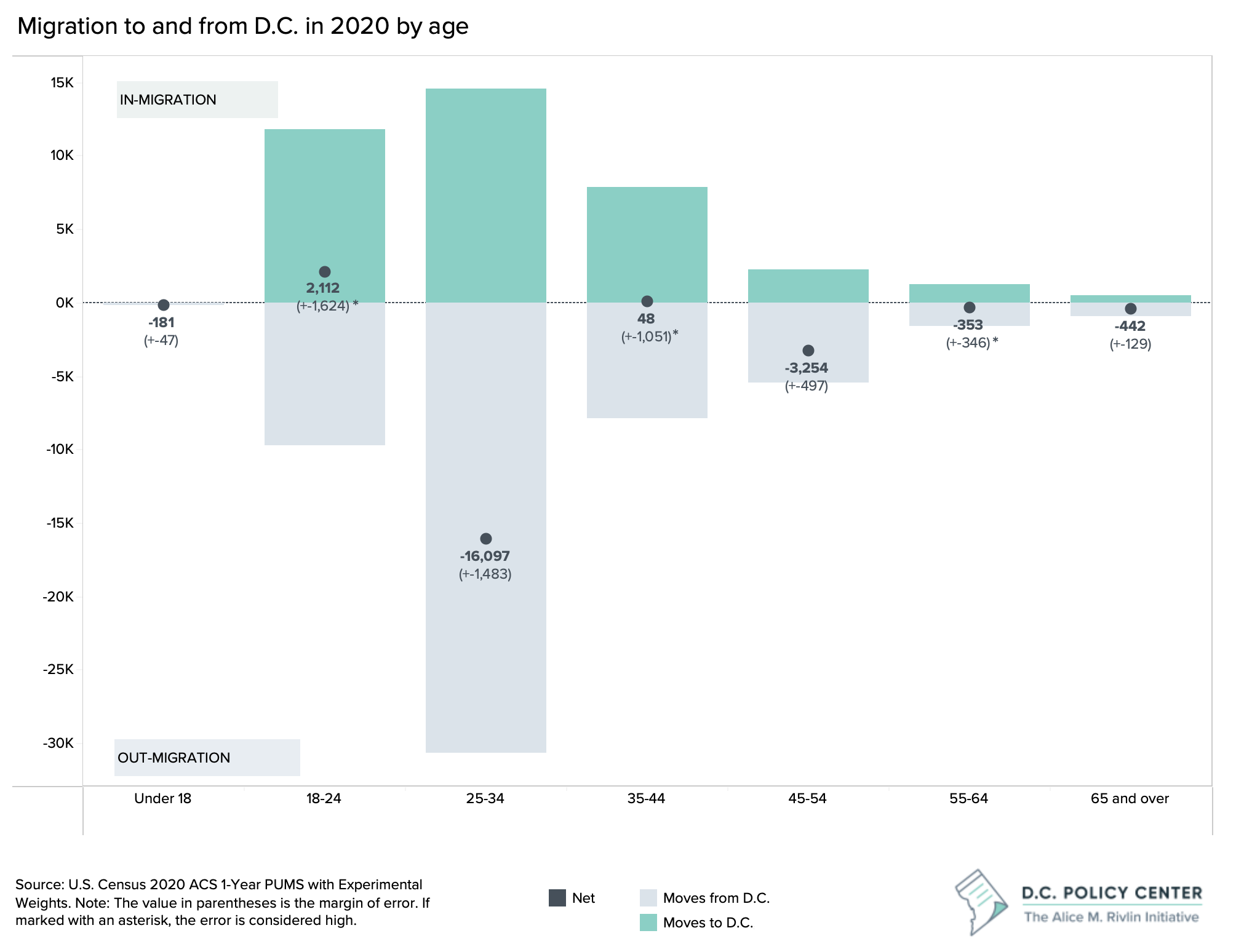With the rise of teleworking and shifting preferences in the wake of the COVID-19 pandemic, the District of Columbia finds itself at greater risk of losing its young professional population. In the first year of the pandemic, the largest population group that left the District was young adults. Of the residents who moved out of the District in 2020, 54 percent were aged 25 to 34 (margin of error: 0.5 percent).
The city’s outflow of residents in this age group was greater than the inflow, resulting in a net loss of 16,097 residents aged 25-34 (margin of error: 1,483), or 89 percent of the city’s net population loss (margin of error: 14.7 percent). This is a relatively large share, considering this group accounted for 23 percent of the city’s total population in 2019. Even when accounting for some of the relatively high margins of error in the data, the greatest loss in residents by age group is still those aged 25 to 34.
In an upcoming publication, we will dissect these trends further, looking at what other groups left the city in the pandemic, whether or not these moves are permanent or temporary, and likely explanations for the city’s population loss.
